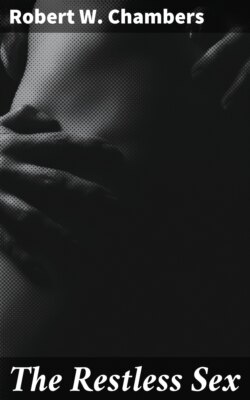Читать книгу The Restless Sex - Robert W. Chambers - Страница 8
На сайте Литреса книга снята с продажи.
ОглавлениеJohn Cleland dropped the paper suddenly across his knees. A fierce distaste for suffering, an abrupt disinclination for such details checked further perusal.
"Damnation!" he muttered, fumbling for another cigar.
His charities already had been attended to for the year. That portion of his income devoted to such things was now entirely used up. But he remained uneasily aware that the portion reserved for further acquisition of Americana—books, prints, pictures, early American silver, porcelains, furniture, was still intact for the new year now beginning.
That was his only refuge from loneliness and the ever-living grief—the plodding hunt for such things and the study connected with this pursuit. Except for his son—his ruling passion—he had no other interest, now that his wife was dead—nothing that particularly mattered to him in life except this collecting of Americana.
And now his son had gone away again. The day had to be filled—filled rather quickly, too; for the parting still hurt cruelly, and with a dull persistence that he had not yet shaken off. He must busy himself with something. He'd go out again presently, and mouse about among musty stacks of furniture "in the rough." Then he'd prowl through auction rooms and screw a jeweller's glass into his right eye and pore over mezzotints.
He allowed himself just so much to spend on Americana; just so much to spend on his establishment, so much to invest, so much to give to charity——
"Damnation!" he repeated aloud.
It was the last morning of the exhibition at the Christensen Galleries of early American furniture. That afternoon the sale was to begin. He had not had time for preliminary investigation. He realized the importance of the collection; knew that his friends would be there in force; and hated the thought of losing such a chance.
Turning the leaves or his newspaper for the advertisement, he found himself again confronted by the columns containing the dreary "Hundred Neediest Cases." And against every inclination he re-read the details of Case 119.
Odd, he thought to himself angrily, that there was nobody in the city to contribute the few dollars necessary to this little girl. The case in question required only fifty dollars. Fifty dollars meant a home, possibly moral salvation, to this child with her winning disposition and unruly ways.
He read the details again, more irritated than ever, yet grimly interested to note that, as usual, it is the very poor with many burdens who help the poor. This carpenter, living probably in a tenement, with a wife, an unborn baby, and a herd of squalling children to support, had still found room for another little waif, whose drug-sodden parents had been kind to her only by dying.
John Cleland turned the page, searched for the advertisement of the Christensen Galleries, discovered it, read it carefully. There were some fine old prints advertised to be sold. His hated rivals would be there—beloved friends yet hated rivals in the endless battle for bargains in antiquities.
When he got into his car a few minutes later, he told the chauffeur to drive to Christensen's and drive fast. Halfway there, he signalled and spoke through the tube:
"Where is the United Charities Building? Where? Well, drive there first."
"Damn!" he muttered, readjusting himself in the corner under the lynx robe.
